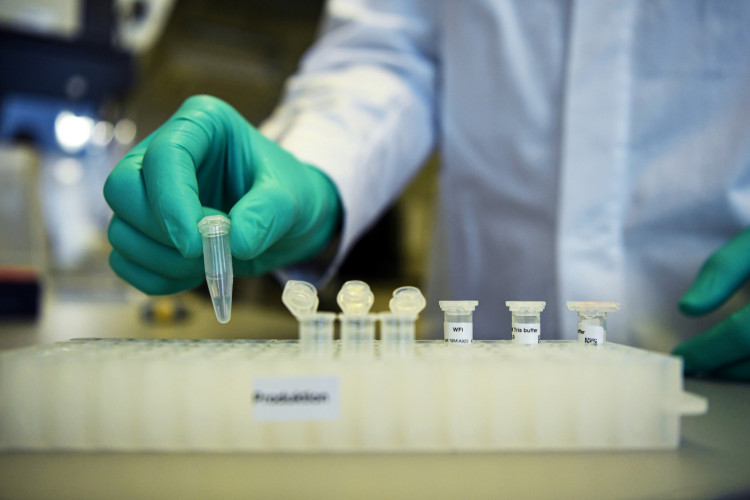The world must join together in a united effort to procure and distribute potential vaccines against the coronavirus, the head of the Africa Centers for Disease Control and Prevention said Thursday while the World Health Organization said 76 rich nations were now committed to joining a global COVID-19 vaccine allocation plan.
The U.S. has said it won't join the effort, called COVAX, because of President Donald Trump's administration's objection to WHO involvement, a move described by some as "disappointing."
"We are in this together. No country will be safe if any other country in the world still has cases of COVID," head of the Addis Ababa-based Africa Centers for Disease Control and Prevention John Nkengasong said.
Meanwhile, Malaysia on Thursday added at least nine more countries, including the U.S., UK and France, to its list of long-term immigration pass holders to be barred from the country, national news agency Bernama reported.
Malaysia said Tuesday said it would bar entry from Sept. 7 pass holders from India, Indonesia and the Philippines to curtail imported coronavirus cases.
Malaysia, which has reported 9,374 COVID-19 cases and 128 deaths as of Thursday, has banned tourists and business travelers from entering the country since March when it imposed curbs on movement and commerce to contain the spread.
In mainland China there were tears and excitement from students as they greeted teachers on the first day of school after seven months in the China city of Wuhan. However, parents and teachers warned that while the coronavirus had retreated, no one could afford to let down their guard.
The central China city - where the coronavirus pandemic began - allowed more than 2,800 educational institutions to start their new term this week - opening their doors to nearly 1.4 million students for the first time since January.
On the pharmaceutical front, French drugmaker Sanofi and Britain's GlaxoSmithKline PLC said they had started a clinical trial of their protein-based COVID-19 vaccine candidate, and aimed to reach the final testing stage by December.
If the results are conclusive, Sanofi and GSK hope to get the vaccine approved in the first half of next year.
The trial is currently in a "Phase 1/2 study" aimed at evaluating the safety, tolerability and immune response of the vaccine in 440 healthy adults across 11 investigational sites in the U.S.
The vaccine candidate uses the same recombinant protein-based technology as one of Sanofi's seasonal influenza vaccines. It will be coupled with an adjuvant, a substance that acts as a booster to the vaccine, made by GSK.
The two companies are scaling up manufacturing in order to be ready to produce up to 1 billion doses in 2021.
Meanwhile, 76 wealthy nations are now committed to joining a global COVID-19 vaccine allocation plan jointly led by the World Health Organization that aims to help buy and fairly distribute the shots, the project's joint chief said.
Seth Berkley, chief executive of the GAVI vaccines alliance, said the coordinated plan, known as COVAX, now has Japan, Germany, Norway and more than 70 other nations signed up, agreeing in principle to procure COVID-19 vaccines through the facility for their populations.
"We have, as of right now, 76 upper middle income and high income countries that have submitted confirmations of intent to participate - and we expect that number to go up," Berkley told Reuters in an interview.
"This is good news. It shows that the COVAX facility is open for business and is attracting the type of interest across the world we had hoped it would," he said.
COVAX coordinators are in talks with China about whether it might also join, Berkley said.
In what appeared to be a change of position Wednesday, the European Union said its member states could buy potential COVID-19 vaccines through COVAX.
People in Britain continued to gradually return to work in late August, something Prime Minister Boris Johnson wants to speed up in September to help the economy recover from its historic coronavirus slump.
Fifty-seven percent of working adults traveled to work between Aug. 26 and Aug. 30, up from 55 percent two weeks earlier and 33 percent in May, the country's statistics office said Thursday.
Those working exclusively from home slipped to 20 percent from 22 percent, the Office for National Statistics said. That figure stood at nearly 40 percent in June.
Johnson has urged more people to get back to their workplaces as schools across Britain reopen after the summer holidays.
Last week, one of the country's business leaders said big urban centers looked like ghost towns, putting at risk swathes of companies which cater to commuter workers.






